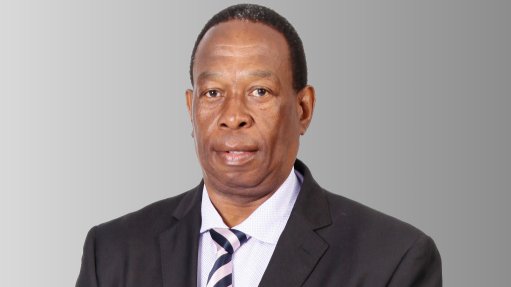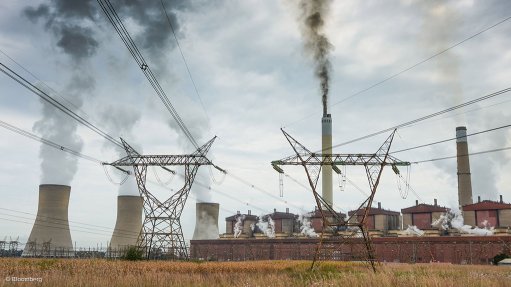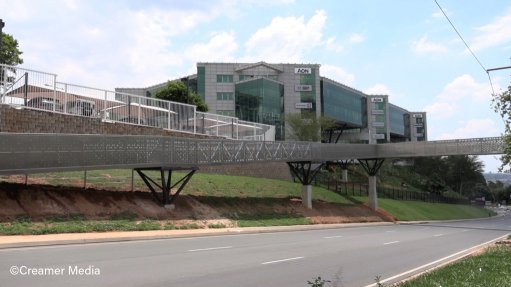Independent agencies can have teeth and autonomy
Some South Africans, with some knowledge of events in Brazil, have expressed a degree of envy at the successful impeachment, last year, of President Dilma Rousseff.
This was, in fact, the second time since the restoration of democracy in Brazil in 1985 that popular pressure has brought down a President. The first time involved then President Fernando Collor de Mello, at the end of 1992. Although he resigned before the impeachment process was completed – he had been charged by the Chamber of Deputies but his trial in the Senate had not yet started – the process was completed and he was found guilty of official misconduct and banned from holding any public office for eight years. (After the ban had expired, he returned to politics; he is a Senator today.) This was the result of mass protests triggered by evidence of large-scale corruption and influence peddling in his administration.
Rousseff had been the Chief of Staff (to use the US term) of her predecessor, President Luiz Inácio Lula da Silva (Lula). He chose her to be their party’s (the Workers Party) candidate to replace him after his two terms were over. He presum- ably thought that his legacy would be safest in her hands. Once elected President, she became yet another exemplar of the Peter Principle – the tendency for people to be promoted to the level of their incompetence. A successful Chief of Staff, she proved an incompetent President. It took time for this incompetence to become manifest, to be sure, because she was not a raving incompetent but someone who was incompetent because she was out of her depth. She slowly lost control of things. Under her watch, the political coalition assembled and carefully maintained by Lula unravelled. But, more importantly, she proved to be out of her depth in dealing with the economy. She did win re-election in 2014, but, once re-elected, she proved totally incapable of countering the recession, which had started in 2014 and just worsened under her watch. Moreover, to win re-election, she had engaged in large-scale illegal financial manoeuvres involving the federal budget and State-owned banks to both increase public spending and hide from voters the deepening recession. (This was the subsequent determination of the Accounts Court of the Union, the Brazilian equivalent of South Africa’s auditor-general, and this is why she was impeached.)
Now, while the Accounts Court of the Union fulfils the same basic role in Brazil as the auditor-general does in South Africa, the two institutions cannot be regarded as equivalent, because the Brazilian agency has teeth. Its functions and powers are laid out in Title I, Chapter 1, Section IX of the Brazilian Constitution. Thus, in Article 71, part VI, it shall (in the words of the official English translation) “control the use of any funds transferred by the Union [that is, the federal government], by means of an agreement, arrangement, adjustment or any other similar instrument, to a state, the federal district or a municipality”. Part VIII states it will, “in the case of illegal expenses or irregular accounts, apply to the responsible parties the sanctions provided for by law, which shall establish, among other comminations, a fine proportional to the damages caused to the public treasury”. Part IX adds it will “determine a period of time for the agency or entity to take the necessary steps for the strict compliance with the law, if an illegality is established” and part X continues “[it shall] stop the execution of the impugned act, in case it is not heeded, notifying the Chamber of Deputies and the Federal Senate of this decision”. The Accounts Court shall, Part XI states, “present a formal charge to the competent power on any irregularities or abuses verified”, while Paragraph 1 of the same part (XI) requires the National Congress to “directly” adopt the “stopping act” in the case of a contract and “immediately request” the executive to implement the necessary measures. Paragraph 2 then states that, if the legislature or executive do not fulfil the measures laid out in Paragraph 1 within 90 days, the Accounts Court itself will decide the matter. “Decisions of the court resulting in the imposition of a debt or fine shall have the effectiveness of an execution instrument.” Being a court, it is headed by nine justices, three appointed by the President and six by the National Congress.
All this, of course, took place against the background of the ever-widening ‘Lava Jato’ (literally, Jet Wash, but in this case Car Wash) operation of the federal police (Polícia Federal, or PF in Portuguese) and the federal prosecuting authority, the Ministério Público Federal (MPF, which translates literally as the Federal Public Ministry, a title confusing to English speakers), which started in March 2014. If Rousseff had not been brought down by her financial improprieties, Lava Jato would have gotten her. Lava Jato uncovered a corruption racket on a staggering scale, engulfing many of Brazil’s political and business elites. Powerful politicians and leading businesspeople, once thought untouchable, have been arrested, prosecuted, tried, convicted and are now in prison. Many more are being prosecuted or investigated. Those currently under investigation include nine federal Ministers, three state governors, 24 senators and 39 congressmen. Lula, Rousseff and current President Michel Temer have all been implicated and all could very well, in due course, find themselves on trial. Neither these elites nor Rousseff and Temer have been quite unable to interfere with, delay or halt any Lavo Jato investigations, which enjoy huge popular support.
The MPF is headed by the attorney-general of the republic, who must, the Constitution states (Title IV, Chapter IV, Section I, Article 128), be a “career member” and is nominated by the President but appointed by “an absolute majority” of the Senate. (Paragraph 1 – note, in Brazil, no single party can ever muster an absolute majority in the Senate on its own.) In Paragraph 2 it states that a President can only dismiss an attorney-general if authorised “by the absolute majority” of the Senate.
Brazil has had more than one experience in democracy and in the collapse of democracy. As a result, they have more safeguards in their system than South Africa has. Even so, Brazilians are seriously talking about major constitutional reforms, even creating a new Constitution (the current one, in the official English translation, is 160 pages long). It is increasingly clear that South Africa also needs constitutional reform.
Article Enquiry
Email Article
Save Article
Feedback
To advertise email advertising@creamermedia.co.za or click here
Comments
Press Office
Announcements
What's On
Subscribe to improve your user experience...
Option 1 (equivalent of R125 a month):
Receive a weekly copy of Creamer Media's Engineering News & Mining Weekly magazine
(print copy for those in South Africa and e-magazine for those outside of South Africa)
Receive daily email newsletters
Access to full search results
Access archive of magazine back copies
Access to Projects in Progress
Access to ONE Research Report of your choice in PDF format
Option 2 (equivalent of R375 a month):
All benefits from Option 1
PLUS
Access to Creamer Media's Research Channel Africa for ALL Research Reports, in PDF format, on various industrial and mining sectors
including Electricity; Water; Energy Transition; Hydrogen; Roads, Rail and Ports; Coal; Gold; Platinum; Battery Metals; etc.
Already a subscriber?
Forgotten your password?
Receive weekly copy of Creamer Media's Engineering News & Mining Weekly magazine (print copy for those in South Africa and e-magazine for those outside of South Africa)
➕
Recieve daily email newsletters
➕
Access to full search results
➕
Access archive of magazine back copies
➕
Access to Projects in Progress
➕
Access to ONE Research Report of your choice in PDF format
RESEARCH CHANNEL AFRICA
R4500 (equivalent of R375 a month)
SUBSCRIBEAll benefits from Option 1
➕
Access to Creamer Media's Research Channel Africa for ALL Research Reports on various industrial and mining sectors, in PDF format, including on:
Electricity
➕
Water
➕
Energy Transition
➕
Hydrogen
➕
Roads, Rail and Ports
➕
Coal
➕
Gold
➕
Platinum
➕
Battery Metals
➕
etc.
Receive all benefits from Option 1 or Option 2 delivered to numerous people at your company
➕
Multiple User names and Passwords for simultaneous log-ins
➕
Intranet integration access to all in your organisation
















